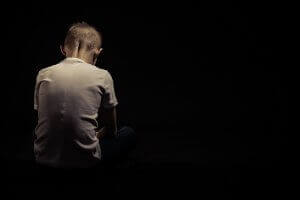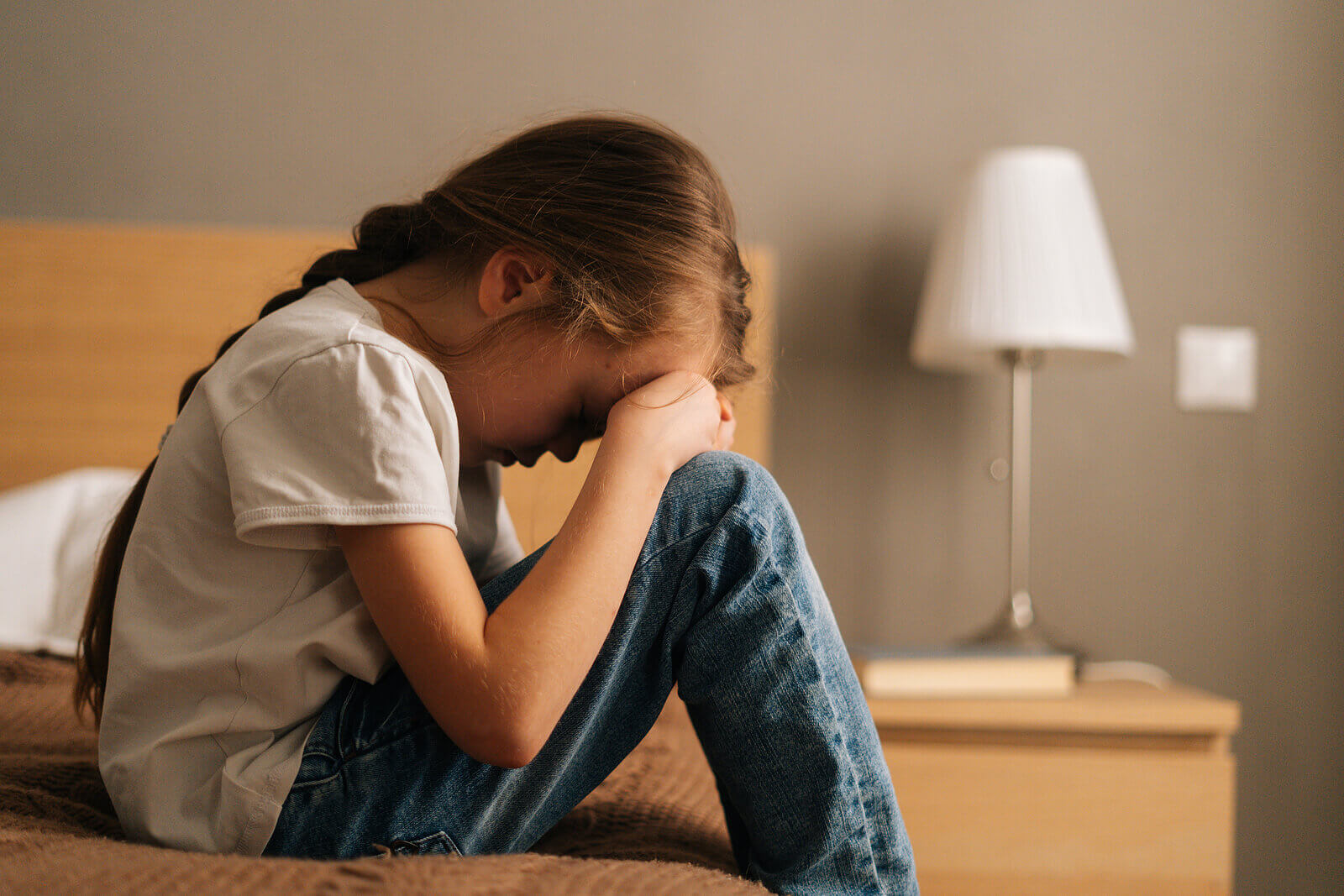Being the parent of an anxious child can at times be a consistent struggle. If you are a parent who has experienced intense anxiety, you may understand that out-of-control feeling. If anxiety has never been an issue for you, you may find your child’s anxious behaviors baffling. Anxiety can gnaw at you. It makes it difficult to think, let alone think rationally. Anxiety may be experienced as an unyielding cascade of thoughts. Or it may manifest as unrelenting sensations. Either way, it can be unpredictable and difficult to control.
Childhood Anxiety and the Need for Control
Anxiety in children
Children who feel powerless may experience heightened anxiety levels. Understand that what powerlessness means to one child may be very different from another. For some children, powerlessness might arise from the dissolution of their parents’ marriage. For other children, these feelings may arise from the inability to pick out their own clothing. At the same time, other children may struggle with not being able to predict how a peer will respond to them.
As a parent, it can be difficult to discern the trigger of your child’s anxiety. Without question, this can generate your own anxiety. How can you help and support your child when it can be hard to identify what is worrying them? What if it’s not something you can change? Because the world is unpredictable, doubling down on routine and structure can help contain your child’s fears. It can build resiliency and reinforce their capacity to be brave in an ever-changing world.
Routine and structure act as stabilizing forces. They provide a framework within which children can develop a sense of predictability and control. Furthermore, by establishing a routine, parents create a safe and familiar environment. This helps children feel more empowered and less susceptible to the uncertainties that fuel their anxiety.
Fears of the Unfamiliar and Unknown
Anxiety often takes root in the unfamiliar and unknown. In fact, this is by design. Our brains are structured to see the unfamiliar as potentially dangerous. Danger regenerates anxiety. It’s a survival mechanism. And a good one at that. Routine is an invaluable tool for creating familiarity. This is especially true for anxious children.
Furthermore, different people have different baseline levels of ability to tolerate the unfamiliar. Indeed, novel experiences can be exciting. This is especially true if you have the energy to tap into curiosity and courage. Ongoing routine and structure can create energy reserves to tap into curiosity and courage in unfamiliar situations.
For example, consider a child starting a new school year. The uncertainty of a new classroom, new teachers, and unfamiliar faces can be overwhelming. Establishing a morning routine that includes a consistent breakfast time, a getting ready ritual, and a special moment of connection can greatly ease your child into the day. This predictability can be soothing. It can help your child face the unknown with greater confidence and resilience.
Not Feeling Contained: The Role of Structure in Providing a Safety Net

Think of structure as the safety net that catches a child when they might otherwise feel overwhelmed. It creates consistency. Predictability. A solid foundation to explore and test their environment. The secure base.
One powerful example of the structure providing containment is bedtime routines. A consistent bedtime routine signals to the child that it’s time to wind down and prepare for sleep. This structure can help ensure a good night’s rest and also foster a sense of safety and security. Bedtime routines can help prevent and manage bedtime anxiety.
Concrete Examples of Routine and Structure That Can Help Manage Anxiety in Children Under 10:
1. Morning rituals to consider can include
-
- A consistent wake-up time.
- The way you wake your child up. (e.g. kisses, calling their name, turning on music, using their alarm clock, etc)
- The sequence of tasks (e.g. first brush teeth, second get dressed, third eat breakfast)
- Looking at the calendar to see what is planned for the day/week.
- Kids can frequently be surprised by an afterschool activity due to differences in their sense of time and days of the week.
- Children can be thrown off by an unanticipated change in schedule. It’s good to let them know if you have noticed.
- A connection ritual (e.g. talking about something they are looking forward to on the way to school; a 2-minute dance party before leaving the house)
2. After-school routines to consider can include
-
- How you will greet them. Do you have a child who prefers some silence relief after school? Do they want to tell you all the tea and you have to be ready to listen?
- A structured break for snacks and relaxation.
- A consistent time for extracurricular activities and homework.
 3. Bedtime rituals to consider can include
3. Bedtime rituals to consider can include
-
- A consistent bedtime.
- A behavior that gets performed every night. For example, my son asks for 5 more minutes every day. This has become an evening ritual. The internet cuts off at 7:55. He asks for 5 more minutes. I make it sound like a huge inconvenience and then give in. After 5 minutes the internet cuts off his video. He comes back to me and a race to see who can get upstairs first ensues. I always let him win and he heckles me. He knows to expect this every night. This combines consistency, predictability, and his ability to exert control and power over his environment.
- Develop a calming bedtime routine involving activities like reading a book, listening to an audio story, or having a soothing conversation.
- Ensure the sleep environment is comfortable and conducive to rest.
4. Weekend Plans
-
- Outline weekend activities in advance. Calendars are a great way to provide predictability, especially for children in multiple households. Discuss concerns your child may have about certain activities in advance. If social gatherings are anxiety-provoking, map out the details. Discuss when you will arrive, how long you will stay, and where your child can go if they need space. If your child has food allergies, review the food you will bring to a gathering and the foods that are safe. Review what to do if they are offered food. Having a script and a plan goes a long way in managing anxiety.
- In addition to structured time, leave some unstructured time on the weekends. This gives your anxious child the autonomy to explore interests, express creativity, and embrace imagination. Unstructured time allows the opportunity for self-regulation and problem-solving. This can foster bravery and confidence.
- Maintain consistent mealtimes and sleep schedules.
5. Transition Routines
-
- Create transition rituals for major life changes, such as starting a new school year or moving to a new house.
- Involve the child in the planning process to empower them and reduce anxiety. The more input they can have in creating the structure, the more power and control they will experience. This can foster curiosity and courage in tackling new situations.
In reducing anxiety in children under 10, routine and structure emerge as steadfast companions. By recognizing the interplay between anxiety and a child’s need for control, parents can actively contribute to their child’s emotional well-being. Routines and structure make children feel like they are in control. It gives them boundaries to test. These boundaries can help children feel protected and energized. With this energy, they can take on novel situations with minimal anxiety, letting courage and curiosity lead the way.
Begin Working With A Child Therapist in Branchburg, NJ, Scotch Plains, and Across New Jersey
Managing anxiety in your child through routine and structure can come with many questions. Our team of therapists would be happy to help you better understand the benefits of child therapy, and decide the best course of action for your child. We offer in-person and online therapy services from our Scotch Plains, NJ, and Branchburg, NJ-based practice. To start your therapy journey, please call us at (908) 242-3634 or follow these simple steps:
- Contact Brave Minds Psychological Services for a free consultation
- Meet with a caring therapist
- Get the parenting support you deserve
Other Services Offered at Brave Minds Psychological Services
At Brave Minds Psychological Services, we believe child therapy can make a massive impact. That said, we also offer other mental health services outside of those offered for children. Alongside more general counseling for children, we specialize in anxiety treatment for children and child sexual abuse therapy. Additionally, we have therapists who specialize in offering therapy for teens, including counseling for teens with anxiety and social phobia treatment for teens.
Additionally, we offer a wide range of mental health services for adults including anxiety treatment, couples therapy/marriage counseling, counseling for postpartum depression, OCD treatment, bereavement counseling, and food allergy therapy. We also have specialized trauma therapy and PTSD treatment. This includes counseling for birth trauma, pregnancy loss and miscarriage, equestrian trauma, and sexual assault counseling for adults.



 3. Bedtime rituals to consider can include
3. Bedtime rituals to consider can include